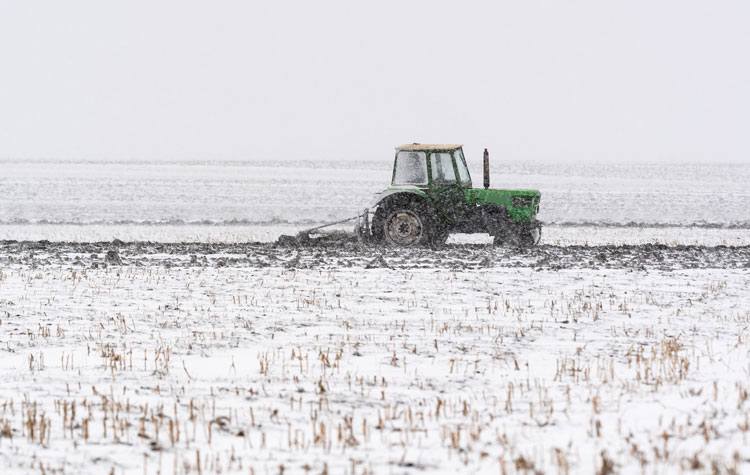
“An ounce of prevention is worth a pound of cure” is a phrase we have all heard and can relate to. Famers have several standard operating procedures (SOPs) in place to help prevent the spread of disease in animals and complications in equipment, including vaccination programs, sanitation protocols, and regular maintenance of equipment.
One piece of equipment that can be easily overlooked but become problematic and expensive during the winter is diesel engines, particularly your farm truck. According to the experts at Matzke Diesel in Monroe, Wis., just a few preventative maintenance steps can keep diesel engines running strong all winter long.
Once the temperature drops below 32°F, diesel fuel will start to become a gel-like consistency in the tank, decreasing the flow through the fuel lines and into the fuel filter and the injectors. One of the best ways to prevent this is adding a winter fuel additive to the tank. This additive helps to maintain fuel flow to minus 30°F, keeping lines, filters, and injectors clear. It should be noted that an engine block heater does not prevent the fuel tank from dropping in temperature.
These additives are available at many farm and automotive store for a nominal fee. Additives can be used at 30°F, helping to prevent gelling before the temperature even starts to fall. These products should be added just prior to filling the tank and only added to the fuel tank. It should not be added to the DEF tanks, which are common on newer vehicles.
Luckily, if you do not or forget to use additive, there are also several diesel “rescue” products available as well. These products help to reliquefy fuel in the tank. Additionally, a 50/50 blend of rescue and fuel should be added to the fuel filter. Once you start the engine, let it idle to move fuel through the lines.
Many fuel stations incorporate additives in their fuel for the winter. However, companies add the additives at different ratios, so there is a lot of inconsistency, leading to a loss in fuel efficiency and sometimes not enough additive to be effective.
Preventative measures are not limited to just diesel trucks. Anything with a diesel engine should be a part of a winter protocol. Just a few minutes a week can keep vital equipment functional during cold days and save time and money on costly repairs.






